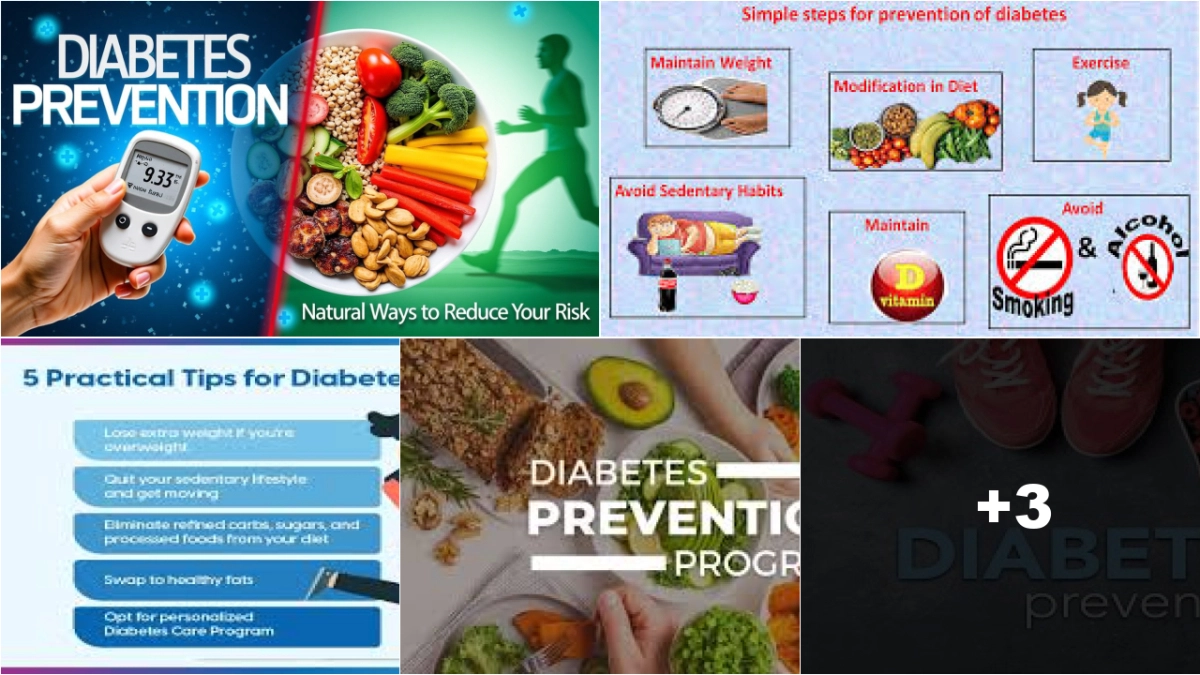Diabetes is a growing global health crisis, with over 537 million adults living with the condition worldwide. The good news? Type 2 diabetes is largely preventable through lifestyle changes. In this guide, we’ll explore science-backed strategies to reduce your risk, debunk common myths, and provide actionable steps for long-term health.
Understanding Diabetes: Types & Risk Factors
Before diving into prevention, it’s crucial to understand the difference between Type 1 (autoimmune) and Type 2 (lifestyle-influenced) diabetes. While Type 1 cannot be prevented, Type 2 diabetes is highly preventable through diet, exercise, and healthy habits.
Key Risk Factors for Type 2 Diabetes:
- Obesity or excess weight
- Sedentary lifestyle
- Family history of diabetes
- Poor diet (high in sugar & processed foods)
- High blood pressure or cholesterol
10 Proven Strategies for Diabetes Prevention
1. Maintain a Healthy Weight
Excess fat, especially around the abdomen, increases insulin resistance. Losing just 5-10% of body weight can significantly lower diabetes risk.
Actionable Tip:
- Focus on portion control and whole foods instead of crash diets.
2. Eat a Balanced, Low-Glycemic Diet
A diet rich in fiber, lean proteins, and healthy fats helps stabilize blood sugar.
Best Foods for Diabetes Prevention:
- Leafy greens (spinach, kale)
- Whole grains (quinoa, oats)
- Nuts & seeds (chia, almonds)
- Fatty fish (salmon, mackerel)
Avoid:
- Sugary drinks (soda, sweetened juices)
- Refined carbs (white bread, pastries)
3. Stay Physically Active
Exercise improves insulin sensitivity and helps manage weight.
Recommendations:
- 150 minutes/week of moderate exercise (walking, cycling).
- Strength training 2x/week to build muscle.
4. Monitor Blood Sugar Levels
Early detection of prediabetes (higher-than-normal blood sugar) allows for timely intervention.
When to Get Tested:
- Age 35+ (or earlier if high-risk).
- Annual check-ups if overweight or with family history.
5. Reduce Stress & Improve Sleep
Chronic stress and poor sleep increase cortisol, which raises blood sugar.
Tips:
- Practice mindfulness or yoga.
- Aim for 7-9 hours of quality sleep.
Debunking Common Diabetes Prevention Myths
- Myth: “Only overweight people get diabetes.”
- Fact: While weight is a factor, lean individuals can also develop insulin resistance.
- Myth: “Artificial sweeteners are a safe alternative.”
- Fact: Some studies suggest they may still affect metabolism.
Long-Term Diabetes Prevention: A Lifelong Commitment
Preventing diabetes isn’t about short-term fixes but sustainable habits. Small, consistent changes—like walking daily, choosing whole grains, and managing stress—can make a lifelong difference.
Final Takeaways:
- Eat whole, unprocessed foods.
- Stay active—even small movements count.
- Get regular health screenings.

